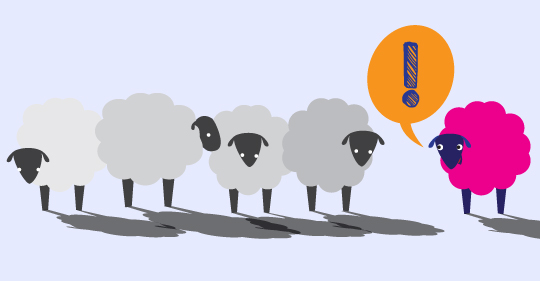A Quick Guide
Critical thinking involves skepticism and logical analysis, while passive thinking is accepting information without questioning it. Critical thinking is important in daily life as it helps evaluate claims, make informed decisions, and avoid falling for scams or manipulation. Developing critical thinking skills is crucial for making sound judgments and navigating through the complexities of the world.
Critical Thinking vs Passive Thinking
To understand critical thinking, consider the following scenario:
Remember when Cristiano Ronaldo simply lifted a water bottle and said ‘Aqua’ (Water) and pushed aside the bottles of Coco-Cola in a press conference? A simple act like this cost Coca-Cola’s market share to drop 1.6% ($4 billion) in value. From this, you can get an idea the influence celebrities have on the public’s perception and behavior. While Ronaldo wasn’t wrong to promote a healthier habit, what if instead of water, he had lifted a bottle of Alcohol?
How many people would have questioned it? and how many would have accepted it and started drinking more alcohol? Imagine the drastic influence it would have had considering Ronaldo’s 299 million Instagram followers. The first group that responds to such an act with skepticism is a demonstration of critical thinking in action. Whereas the second group is an illustration of passive or mindless thinking. Which one is better? To answer this, first let’s take a look at:
What is Critical Thinking?
Critical thinking can be defined as an approach to thinking characterized by skepticism and logical analysis of statements or arguments. In simple words, it means taking nothing for granted, probing, and investigating something before accepting it in your life.
What Passive thinking looks like
Unfortunately, most of us are victims of thinking passively. We cruise through life like sheep following the herd, never inquiring. Just because something is written on the internet or in a published book or said by a famous person, we start to believe it’s true. You may think it’s an exaggeration, but we do this in daily life. For example, Ever had your parents share pictures starting with ‘Psychologists say…’? on WhatsApp groups, with no scientific evidence whatsoever? Or a friend sharing a YouTube video of a werewolf? Or the new trending video of UFO sightings?

Upon investigation, you might find out that psychologists did not indeed say that girls with glasses are more likely to have a love marriage. Similarly, the werewolf may actually be a man wearing a costume. The UFO sightings could be a media student’s project on camera effects which trended while falling down the internet hole and lost its original context.
The significance of critical thinking in daily life
We cannot blame anyone for thinking passively either because we are not taught how to think critically. Also, we resort to passive thinking because it’s easier while critical thinking requires active effort. In fact, thinking critically is a skill that builds up with practice. Eventually, it becomes a worldview and once you do that, you cannot imagine life without it.

It’s reasonable to say critical thinking is the foundation of all science and all the inventions you see around you. It’s because scientists do not just sit around passively. They get outside the herd mentality and act differently than the people around them.
Learning how to think critically will help you question, evaluate and make informed decisions that are actually useful in your daily life.
You may learn to:
- Evaluate whether that personality quiz you took on Facebook is legit.
- To vote for political leaders after evaluating the practicality of their claims in their speeches before elections.
- To not fall into that scam of drinking a magic tea that helps you lose 20 pounds in one week.
- Not apply to ads that promote jobs promising an earning of 5000$ an hour.
- Thinking critically will even help you be more objective when someone is trying to manipulate you into believing their sob story for ulterior gains.
Even therapists learn to think critically while listening to their clients. Otherwise, they might actually agree that the whole world is against you. Whereas, you may not identify the distortion in your thinking, continue with years of therapy and no progress.
In short, critical thinking is an essential life skill that can have a massive impact on our daily decision-making. Now, that we have established its significance, our next articles will explain,
Are Self-Help Books legit? 10 things to look for finding the right book
Are you a victim of believing in Pseudoscience acting as Psychology?
How to differentiate Pseudoscience from Psychology: 15 ways
Learn more about How To Encourage Reading In Children: 12 Effective Strategies


